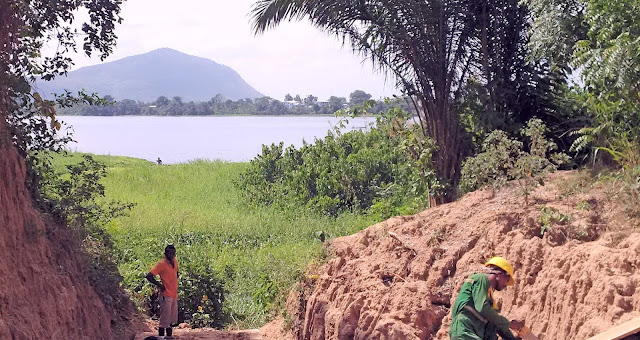Climate change has made risks in agriculture more complex, but decision-support tools empower farmers to better manage these risks. RiceAdvice, an Android app, is one such tool that has become a game-changer for the rice sector in Mali – providing farm-specific, locally relevant information for farmers. It is improving yield, profit and nutrient-use efficiency: data collected in Mali showed that farmers using the recommendations generated by RiceAdvice had on average 0.9 t/ha higher yield and US$320/ha higher income.
Mali is one of the main rice baskets of West Africa, yet it is highly vulnerable to drought and flooding, both of which are exacerbated by climate change. Therefore, digital tools that can eliminate guesswork and increase yields, profits and resilience are valuable. Farmers highlighted that the major advantages of implementing RiceAdvice recommendations have been increased water retention in their fields, less risk of fertilizer loss due to flooding, and increased rice yields.
“Together with national partners and other CGIAR centers, the initiative on Accelerating Impacts of CGIAR Climate Research for Africa (AICCRA) is harnessing the potential of digital tools, such as RiceAdvice, to foster the transformation of rice-based systems in Mali,” said Dr Elliott Dossou-Yovo, AfricaRice Agriculture and Climate Change Specialist and Coordinator of the AICCRA-Mali Cluster.
What is RiceAdvice?
RiceAdvice is a free mobile app that provides advice for optimal nutrient management, weed management and other good agricultural practices – helping farmers to better cope with climatic risks. The guidelines generated through the app assist farmers in making more informed decisions based on return-on-investment calculations, enabling them to select their own target yield level according to their budget.
Developed by AfricaRice, this science-backed decision-support tool is adapted to irrigated lowland and rainfed lowland areas with good water supply and is suitable for adaptation to any such rice area in Africa. RiceAdvice can be also used in remote locations as, except for app updates, it does not require Internet connection to generate the guidelines.
Inclusive Partnerships for Impact
Public- and private-sector extension, development agents and nongovernmental organizations are helping scale RiceAdvice, which has been rolled out in Benin, Burkina Faso, Ethiopia, Ghana, Guinea, Madagascar, Mali, Mauritania, Niger, Nigeria, Rwanda, Senegal, Sierra Leone and Tanzania. Excellent opportunities for young service providers have also emerged as they can generate guidelines from RiceAdvice on a payment basis for farmers, who may not have an Android app and/or technical knowledge to use it themselves.
“In Mali, about 16,225 farmers, including 4,957 women, have benefited from personalized recommendations using RiceAdvice with support from the AICCRA-Mali project, which assisted the farmers in adopting the recommended cultivation practices,” said Dr Dossou-Yovo. “Our development partners, such as the Syngenta Foundation for Sustainable Agriculture, have been catalysts in the scaling up of the app.
The AICCRA-Mali cluster supports the development and adoption of climate information services and climate-smart agriculture mainly across Mali’s rice value chain. The team also focuses on improving the resilience of Mali’s agriculture sector to climate change, while providing job opportunities for women and youth.
As part of the partnership between AICCRA-Mali and the Syngenta Foundation, an inclusive business model using the Centers for Mechanized Agriculture (CEMA) as entry points for scaling RiceAdvice was developed. The Syngenta Foundation facilitated access to loans to the CEMAs and trained young service providers (40% of whom are women) who provided recommendations and support in the adoption of RiceAdvice recommendations.
The Syngenta Foundation also supported vulnerable groups, especially women service providers, in accessing mobile phones In Mali. Its support to the AICCRA-Mali Cluster in building the capacity of women farmers to apply the RiceAdvice guidelines has also shown remarkable results. The average yield increase due to RiceAdvice was higher in women farmers’ fields (1.0 t/ha) compared to that of men (0.8 t/ha).
“The lesson that we learned from the dissemination of RiceAdvice in Mali is that inclusive business models and digital applications can enhance the scaling of climate-smart agriculture technologies and climate information services while providing personalized advice to farmers and creating job opportunities for young men and women,” said Dr Dossou-Yovo.
Email: Media@agricinafrica.com | Agriculture in Africa Media


Comments
Post a Comment